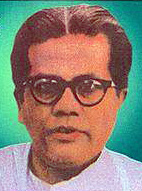In a recent tribute marking the 106th anniversary of the Jallianwala Bagh massacre, Prime Minister Narendra Modi remembered Sir Chettur Sankaran Nair—a fearless nationalist, accomplished jurist, and steadfast critic of colonial injustice. Nair’s legacy remains etched in Indian history for his bold defiance of British rule and enduring commitment to justice and reform.
Early Years and Legal Foundation
Born in 1857 in Mankara village, Kerala, Sankaran Nair embarked on a path of law and service that would define his life’s work. After earning his law degree from Presidency College, Madras, he trained under Sir Horatio Shepherd, who later became Chief Justice of the Madras High Court. These formative years laid the groundwork for Nair’s unwavering dedication to fairness and legal integrity.
A Distinguished Career of Sir Chettur Sankaran Nair
Sankaran Nair rose quickly through the ranks of the colonial legal system. Appointed public prosecutor in 1899 and later judge of the Madras High Court in 1908, he brought sharp intellect and deep ethical principles to the bench. In 1912, he was knighted for his services, but his loyalty was always to justice over empire. His tenure on the Viceroy’s Executive Council, particularly in the area of education reform, reflected his broader vision for a progressive India. However, his resignation in 1919 over the Jallianwala Bagh massacre marked a bold protest against British atrocities.
Nationalist Voice and Political Contributions
A firm believer in constitutionalism and reform, Nair played a crucial role in the Indian National Congress, presiding over its 1897 session in Amraoti. Though he championed Indian self-governance, his moderate approach often clashed with contemporaries like Mahatma Gandhi. He also participated in deliberations around the Simon Commission, advocating for Indian rights on a national platform.
The Jallianwala Bagh Controversy
Sankaran Nair’s boldest confrontation with the British establishment came through his book, Gandhi and Anarchy (1922–1924). In it, he not only critiqued British imperialism but also expressed reservations about Gandhi’s strategies. Nair directly accused Lieutenant Governor Michael O’Dwyer of culpability in the Jallianwala Bagh massacre, leading to a defamation suit in a British court. Though he lost the case, his refusal to retract his claims underscored his moral fortitude and fearless integrity.
Champion of Social Reform
Beyond politics and law, Nair was a progressive thinker who supported inter-caste and inter-faith marriages. In the 1914 Budasna v Fatima case, his landmark ruling affirmed that conversion to Hinduism did not strip one of caste status—a significant step for social equity. He also contributed immensely to legal scholarship as the founder and editor of both the Madras Law Journal and Madras Review.
Sir Chettur Sankaran Nair’s life was one of courage, intellect, and conviction. His principled resistance to oppression and his tireless advocacy for reform continue to resonate as a powerful chapter in India’s journey to independence.












